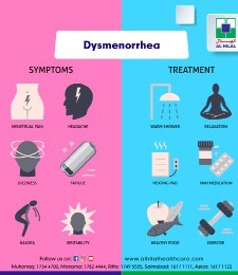By Andrew Bugembe
Dysmenorrhea, commonly known as painful menstruation, has long been a source of concern among adolescent girls and women worldwide. This condition, characterised by intense cramping during menstruation, has far-reaching implications for the quality of life. While it may seem like a routine part of womanhood, the severity of its impact on daily life and health is anything but ordinary. For many women, dysmenorrhea is not just a monthly inconvenience; it is a debilitating condition that hinders their ability to function, sometimes leading to missed work, school, and social engagements.
It is often accompanied by nausea, fatigue, diarrhoea, and headaches. While cramping is common, the intensity and duration of pain vary. For some, it’s mild and manageable, but for others, it’s severe enough to interfere with everyday activities, causing physical and emotional distress.
Globally, an estimated 50% of women experience menstrual pain, with up to 90% of adolescents affected, according to studies. Shockingly, 10–20% of those affected report their pain as acute, intense, or distressing. In Uganda, a 2018 survey by the National Institute of Health revealed a 75.8% prevalence of dysmenorrhea among women, reflecting a significant portion of the population dealing with this condition regularly. In addition to that, the American College of Obstetricians and Gynaecologists (ACOG) reported a 20% rise in severe menstrual cramps since 2010, emphasising the growing health challenge.
In Uganda, many female students from academic institutions bear the brunt of dysmenorrhea. One Uganda Christian University (UCU) alumna who preferred anonymity shares her harrowing experience: “When I was at school last year, I missed class for the first two days of my period. By the fourth day, the pain became unbearable. I would sometimes get my period twice a month, each lasting at least five days.” She was later diagnosed with endometrial hyperplasia, a condition where the uterine lining becomes unusually thick, requiring treatment. “The doctors suggested hormonal IUD treatment, but the journey to recovery has been long and painful,” she adds.
Victoria Nantambi, a recent graduate of UCU, stresses that no two women experience the same level of menstrual pain. “Some girls are on medication every month; others need cannulas to manage the pain, while some feel nothing at all,” she says. She advises that diet plays a significant role in managing symptoms and that lifestyle changes, such as reducing stress and eating healthy, can lessen the severity of cramps.
Medical professionals in Uganda are seeing an increase in dysmenorrhea cases, which some attribute to hormonal imbalances and modern lifestyle changes. Dr. Othiniel Musana, a gynaecologic oncologist at St. Francis Hospital Nsambya and president of the Association of Obstetricians and Gynaecologists of Uganda (AOGU), explains that while menstrual cramps are normal, severe pain or symptoms like nausea and diarrhoea require medical attention. “The dynamics are changing, and we’re seeing more dysmenorrhea cases than in the past 20 to 30 years,” he notes. He adds that for young women, excessive hormones or imbalances may be the culprit, leading to stronger cramps during their periods.
Medical conditions such as endometriosis, uterine fibroids, and adenomyosis are also linked to painful periods. Mayo Clinic, a leading health care institution in the U.S., describes endometriosis as a condition where the tissue lining the uterus grows outside of it, causing intense pain. Uterine fibroids and pelvic inflammatory diseases are also common culprits that intensify menstrual cramps.
The consequences of severe menstrual cramps extend beyond physical pain. Emotional distress, loneliness, and reduced participation in social activities are common. For young women, dysmenorrhea often leads to absenteeism from school, negatively affecting their academic performance.
In Uganda, dysmenorrhea disrupts the lives of students, professionals, and women in the workforce. The emotional toll of missing work or school and the feelings of isolation add to the burden.
According to the National Institute of Health, managing painful periods requires a multi-pronged approach, that is to say, over-the-counter pain medications like nonsteroidal anti-inflammatory drugs (NSAIDs) offer relief for many women. Hormonal contraceptives are another option to regulate menstrual cycles and reduce pain. In severe cases, medical interventions like hormonal IUDs or surgeries may be necessary.
Alternative therapies like yoga, acupuncture, and dietary changes are also gaining popularity for their potential to alleviate menstrual pain. Supplements such as magnesium and omega-3 fatty acids have been found to provide relief for some women. Dr. Musana emphasises the importance of minding one’s diet, noting that processed foods, high sugar intake, and exposure to pollutants can exacerbate cramps.
Despite the rising prevalence of dysmenorrhea, the conversation around menstrual health often remains shrouded in stigma and silence. Societal attitudes must shift to ensure women are empowered to seek the care they need without judgment. Raising awareness, promoting research, and advocating for effective treatment options are essential in tackling this health issue.


